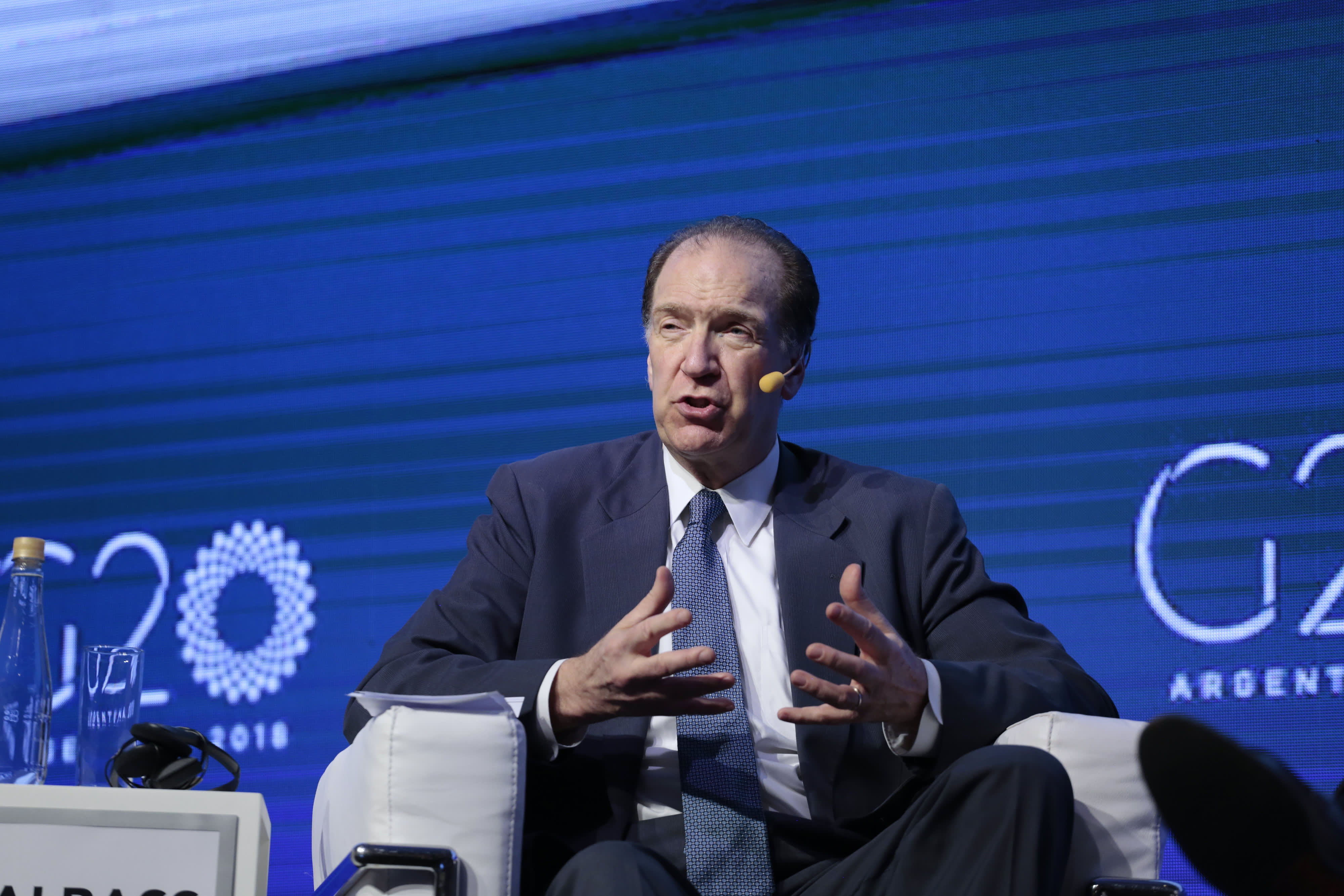The coronavirus pandemic may set back economic growth efforts in developing nations, World Bank President David Malpass told CNBC on Wednesday.
Futher progress can be made on access to electricity, clean water and sanitation, Malpass said in a "Squawk on the Street" interview, "but the big worry is that we're moving backward because of the global recession."
The Covid-19 outbreak has had devastating impacts on the global economy as the disease spread around the world after it originated late last year in China.
Supply chains have been disrupted, and tens of millions of workers have lost their jobs or had their hours reduced as governments implemented restrictions on economies to minimize transmissions.
As a result of the pandemic, the world will likely experience its worst recession since the Great Depression, the International Monetary Fund said Tuesday.
"This is a huge problem. The world recession will be deep and that especially impacts poorer countries," Malpass said.
The World Bank in early April approved a $1.9 billion funding program for developing countries to help support their response to Covid-19. It also approved billions of dollars for coronavirus aid in early March.
"Many of the very populous countries need extra support right now," Malpass said.
A lone cyclist rides past shuttered shops in Lal Chowk during the lockdown on April 14, 2020 in Srinagar, India.
Waseem Andrabi | Hindustan Times | Getty Images
The World Bank has approved a $1 billion project specifically focused on India, which this week extended its national lockdown designed to slow the spread of Covid-19 there. India has more than 11,000 confirmed cases.
Malpass reiterated that the World Bank is prepared to spend up to $160 billion over the next 15 months to support the "economic rebuilding that needs to be done" because of the pandemic.
The recovery in developing nations also is linked to what happens in major economies such as the U.S. and Europe, Malpass added.
"The thing that would help the developing world the most is strong growth in the developed world," Malpass said, calling on global central banks to do their part to ensure small businesses can weather the economic storm.
The International Finance Corporation, which is part of the World Bank, is trying to do that in developing nations, Malpass said.
The IFC "is providing directly working capital lines of credit to keep small businesses opening so that they can be ready for a recovery," he said.


